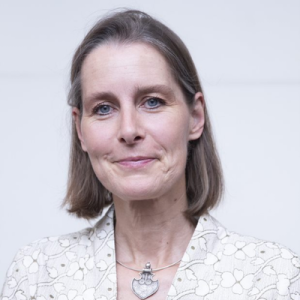- Your Excellency, Samia Suluhu Hassan, President of the United Republic of Tanzania;
- Your Excellency, Hussein Ali Mwinyi, President of Zanzibar and Chair of the Revolutionary Council;
- Government officials;
- Development partners;
- UN colleagues;
- Invited Guests;
- Members of the press;
- Ladies and Gentlemen, Mabibi na Mabwana.
Wanawake Oyeee!
Wanawake Oyeee!
Asanteni Sana!
Habari za Asubuhi, As-Salaam Aleykum.
Kwanza kabisa nawatakia wote Heri ya Siku ya Wanawake Duniani!
Happy Women’s Day!
It gives me great pleasure to be here today on behalf of the entire UN System in Tanzania and to participate in the climax of International Women’s Day here in Zanzibar. Please allow me to begin by congratulating the Government and all other partners for organizing a successful series of events leading up to this day.
Hongereni Sana!
Today, we celebrate women in all their diversity. We celebrate women from all over the world, the United Republic of Tanzania, and from right here in Zanzibar.
The theme for this year, ‘Gender Equality Today for a Sustainable Future’; and the Zanzibar theme, ‘Focus on Gender Equality to Respond to Climate Change for Sustainable Life’; highlight the vital connections between gender, social equity, and climate change.
It further builds on the Glasgow Climate Change Conference - COP26 conference held last year, where nations made commitments geared towards turning the 2020s into a decade of climate action and support.
One of the declarations that resulted from COP26 was the Glasgow Women’s Leadership on Gender Equality and Climate Change, and we congratulate you, Your Excellency, for the meaningful role you played in its development.
The declaration highlights the heightened impacts that climate change has on inequalities, including gender inequality, which coupled with the climate crisis presents one of the greatest challenges of our time.
Environmental changes affect us all, however these changes affect the lives of men and women in different ways. Studies show us that droughts, floods, extreme weather conditions and food and water insecurity acutely impact the poorest segments of populations, and it is therefore women, who form 70% of the world’s poor who experience most adverse impacts. We should also recognize that women with disabilities are even more disproportionately affected.
In mainland Tanzania and Zanzibar, where women shoulder the greater part of responsibilities for growing food, collecting water and fuel and serving as caregivers, the effects of climate change, including drought, uncertain rainfall and rising water levels make it harder to secure these resources.
Historical disadvantages including discriminatory norms and values also limit their access to decision-making and economic assets which compounds the climate-related challenges that they experience.
If we are to successfully strengthen the resilience of women and girls to effectively adapt and respond to these challenges, we need gender perspectives to be integrated into climate, environmental and disaster risk reduction policies and programmes. We need women, girls and marginalized persons in key leadership and decision-making spaces, lending their voices and perspectives to the design and response of climate action.
Enhancing the economic empowerment of women farmers is also critical, including through climate-smart agricultural practices and strategies to enhance women’s access to land, information and technologies.
We want to see principles of equality at the center of all climate change solutions, and this requires increased financing for gender-responsive initiatives, as well as greater investments in making gender-specific statistics and data more available to inform national policies, strategies and plans.
Both globally and here in Tanzania, the United Nations plays a central role in promoting gender equality and women’s empowerment for sustainable development. In Tanzania, this includes enhancing capacities of women farmers to adapt to climate change, promoting the use of climate-resilient inputs and equipping Government officials, communities and other influential actors with the latest trends on differentiating gender roles on environmental conservation.
We also work to promote women’s participation in environmental decision-making bodies to ensure that their voices are heard. Through these efforts, and the collective efforts of all stakeholders in the process, we can significantly improve the lives and resilience of women and men, girls and boys everywhere.
Madam President,
As you may be aware, the UN in Tanzania is in the final stages of launching Tanzania’s first ever UN Sustainable Development Cooperation Framework (UNSDCF), a new generation of UN cooperation frameworks, which will replace our current development plan. The UNSDCF was developed in close collaboration with the Governments of both Mainland and Zanzibar and empowering women and girls and achieving gender equality will be a central to the UNSDCF. We look forward to working with the Government and all partners in its implementation and in all efforts to accelerate progress towards a more gender equal and sustainable world.
With these few words, please allow me close by reading an excerpt of the UN Secretary-General’s statement for International Women’s Day (and I quote):
In all countries, women are scandalously under-represented in the halls of power and the boardrooms of business.
And as this year’s theme reminds us, they bear the brunt of climate change and environmental degradation.
Starting now, on International Women’s Day, it’s time to turn the clock forward for every woman and girl.”
(end of quote)
Asanteni Sana kwa kunizikiliza na heri ya siku ya wanawake duniani!
(Thank you for listening to me and Happy International Women’s Day!)






